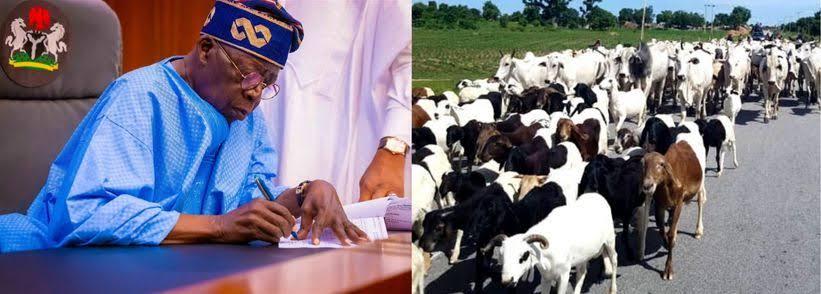678
By Daniel Adaji
Six months after its establishment, Nigeria’s Federal Ministry of Livestock Development remains without a digital footprint, failing to engage journalists on its activities and raising concerns about transparency and accountability.
The ministry, inaugurated following President Bola Tinubu’s creation of the presidential committee on livestock reforms, has repeatedly declined requests from media representatives to provide updates on its initiatives.
Journalists covering the ministry’s affairs lament the absence of press engagements, citing a communication strategy that relies solely on press statements without opportunities for direct interaction.
Journalists assigned to cover the ministry have expressed frustration over its reluctance to provide access to information. Despite repeated appeals to the ministry’s communications directorate, led by Ben Bem Goong, no significant change has occurred.
“So many press releases, don’t the ministry invite journalists for these meetings?” one reporter questioned. “This looks more like just dumping press releases on journalists.”
Another journalist criticized the approach, stating, “They are gradually turning us into press statement journalists. This is tele-guided journalism.”
A journalist from a national publication expressed concerns about the impact on accountability: “It’s obvious they’re not interested in journalists witnessing their events. How do you report what you don’t see? How are you able to hold them accountable when there is no access?”
Despite these concerns, the ministry has not altered its approach. Even direct attempts to reach officials for clarifications have reportedly been ignored.
In response to mounting complaints, a ministry official, Kevwe Uchechukwu, acknowledged journalists’ frustrations but stopped short of providing a concrete resolution.
“We understand your concerns and sincerely acknowledge the frustrations regarding event coverage. Please know that we value your support and are working towards ensuring better collaboration in the near future,” Uchechukwu stated.
“As has been explained repeatedly, the issues at hand are multifaceted, ranging from inadequate office space to access to funding, but we are actively working to address them,” she added.
However, the official offered no timeline for when journalists would gain meaningful access to ministry activities, and no explanation was given for the lack of an official digital presence.
In an age where digital presence is crucial for accessibility and accountability, the ministry’s absence from online platforms remains a glaring omission.
Several checks confirm that FMLD is the only federal ministry in Nigeria without a website or official social media handles, making it nearly impossible for stakeholders to track its activities.
A government directive issued in December 2017 mandated all Ministries, Departments, and Agencies to maintain functional websites to enhance transparency and facilitate access to information.
The directive, in line with the Ease of Doing Business initiative, warned against poor information accessibility, emphasizing the importance of open government partnerships and digital engagement.
Despite this directive, FMLD has made no visible effort to comply.
When contacted for comments on the issue, the Director of Corporate Communications at the Ministry Ben Bem Goong did not respond to the issue. No response to messages and calls.
The failure of the livestock ministry to establish a digital presence has sparked concerns among analysts and stakeholders. Many argue that a functional website is not just an administrative tool but a necessity for transparency and public engagement.
The absence of a digital platform is particularly concerning given the ministry’s mandate. With its focus on modernizing livestock production, promoting investment, and enhancing agricultural productivity, an official website would serve as a vital hub for disseminating information, engaging investors, and addressing public concerns.
The federal government has repeatedly emphasized the need for digital transformation within its agencies. In October 2023, the Ministry of Communication, Innovation, and Digital Economy announced an e-government initiative designed to drive transparency and improve service delivery across MDAs. The initiative prioritizes open data, connected governance, and citizen engagement.
Additionally, the federal government has committed to fully digitizing the civil service by 2025, reinforcing the importance of digital accessibility. Yet, the livestock ministry remains an outlier, failing to align with this broader digital strategy.
With Nigeria’s livestock sector facing significant challenges—including conflicts between farmers and herders, the need for better disease control, and opportunities for export—the lack of an official information hub for the ministry raises serious concerns.
Without a website or open communication channels, stakeholders are left in the dark, unable to access key policy updates, project reports, or investment opportunities.



